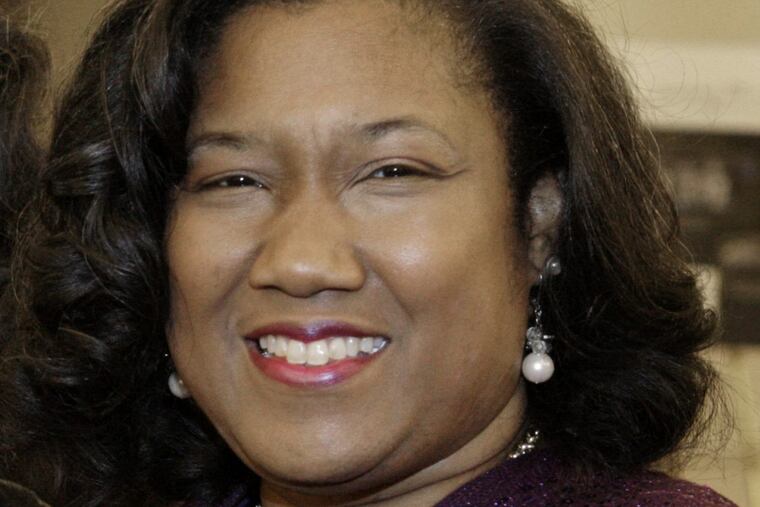Judge: No racial or political bias in `sting' case
State Rep. Vanessa Lowery Brown asked a judge to dismiss the corruption charges against her on ground that she had been targeted because she was an African-American and a Democrat. Judge Scott Evens rejected her arguments.

A judge has rejected the argument of State Rep. Vanessa Lowery Brown that she was targeted in a corruption investigation because she is black and a Democrat, a ruling that represents a major setback for the last defendant in a controversial Harrisburg sting operation.
Dauphin County Judge Scott A. Evans, ruling this week on a series of defense motions in a case that began more than three years ago, dismissed Brown's argument in one sentence.
"We find the defendant has failed to prove the requirements of a selective prosecution, let alone any prosecutorial misconduct," Evans wrote.
The long-awaited ruling is a milestone in the drawn-out pretrial maneuvering over the fate of Brown, 51, a West Philadelphia elected official charged with selling her vote to an undercover operative for $4,000 in cash. In one cash exchange, she was taped pocketing $2,000 from informant Tyron Ali in her Harrisburg office. She looked at the money, and declared: "Ooh, good looking! … Thank you twice."
After the Inquirer reported that former Attorney General Kathleen Kane secretly shut down the investigation after taking office in 2013, the case was resurrected by Philadelphia District Attorney Seth Williams.
In all, Williams' office charged six public officials, including Brown, in late 2014 and early 2015 for allegedly taking money from Ali in exchange for their votes on legislation or other actions. Five have pleaded guilty or no contest.
Of those, three were sitting Democratic House members from Philadelphia who have since resigned from office as part of their pleas, which allowed them to keep their government pensions. Brown has remained in office, easily winning reelection in 2016.
State law allows Brown and other elected officials accused of crimes to stay in office through their trials. If they are convicted, they are required to resign on the day of their sentencing.
After initially admitting her wrongdoing as part of a plea deal, Brown reversed course and began to fight back hard against the charges. Her lawyer does not dispute that she took the money, but asked Evans to dismiss the charges on grounds that the investigation was fundamentally unfair.
Her defense drew upon statements from former aides to Kane suggesting that prosecutors had focused on African Americans and Democrats. In one court filing, the defense cited an FBI agent as quoting Ali as having been told "not to take any initiative in contacting Republicans."
The former prosecutors who launched and oversaw the probe rejected the idea that politics or race had guided their decisions. So did Ali, in testimony before Judge Evans.
Patrick Casey, Brown's lawyer, noted Thursday that his client has one more appeal pending before the state Superior Court, arguing that prosecutors should be banned from using any of her remarks to Ali about legislation because lawmakers have immunity from criminal prosecution for such statements. The Dauphin County District Attorney's Office, which has picked up prosecution of the case from its Philadelphia counterparts, is seeking to quash that appeal.